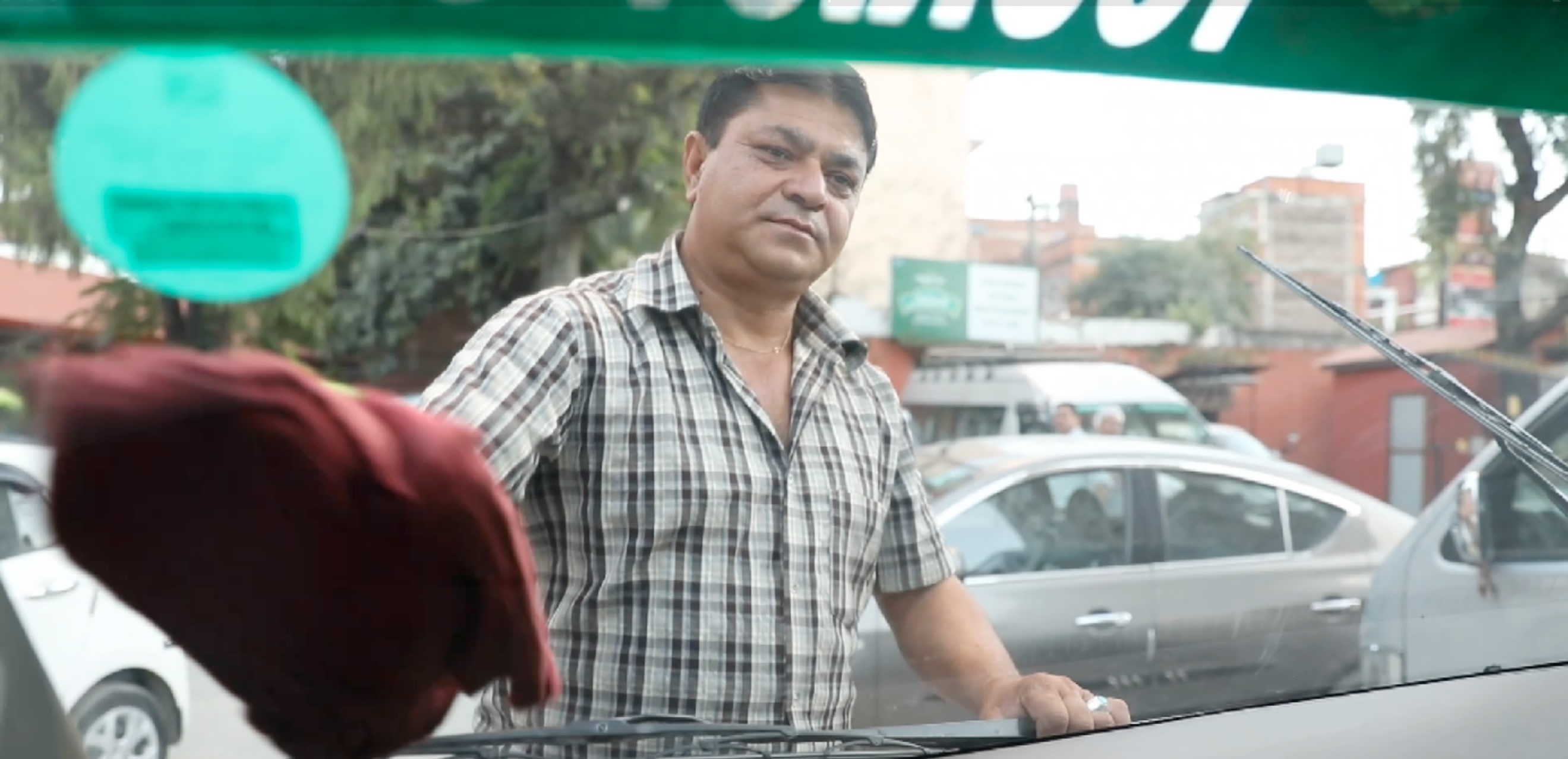
Business
17:35, 21-Nov-2017
Faces of Belt & Road, Nepal: Tourism industry hoping for more Chinese visitors
By Ge Yunfei

In Nepal’s capital Kathmandu, morning always arrives earlier than any other place in the world. Most people here get up at around 5 am.
Prakash Chaulagain, an owner of a small travel agency in Kathmandu, is among the nation's early birds. The 45-year-old likes to wash his Toyota Hiace minivan before he drives it to pick up his group of tourists.
Big and small travel agencies can be found on nearly every street corner in Kathmandu, but Prakash’s business is somewhat special, as he only caters to Chinese visitors.
The number of Chinese tourists to Nepal has been growing at a stunning rate over the past decade, and it’s been gradually reshaping the social landscape in the country.

Prakash is washing his minivan /CGTN photo
Prakash is washing his minivan /CGTN photo
Prakash has been in the tourism business for over 20 years and he used to cater to tourists from India, Singapore and many other places.
“Gradually I found that Chinese tourist are increasing very fast and they’re very easy to cooperate with, so I decided to only focus on them,” Prakash introduced.
Prakash’s son Suraj is responsible for attracting customers from China for the family business. He has a store in Beijing, which is located in one of the city’s most ancient alleys.
Suraj said he always wanted to be a tour guide and his father recommended him to go to China to learn Chinese.
Two years ago, a great earthquake in Nepal cut off the rapid growing number of Chinese tourists. But Prakash and his son still decided to establish their own business.
According to Prakash, two years ago, his company received only a maximum of 50 Chinese tourists every month. But now the number is up to 400. Now he plans to buy another van to take more of the tourists around.

Suraj opend a Nepali handicraft store in one of Beijing's ancient hutongs. / CGTN photo
Suraj opend a Nepali handicraft store in one of Beijing's ancient hutongs. / CGTN photo
During peak seasons, Prakash will work at least 14 hours a day, seamlessly switching the role from manager to driver. “I’ve struggled for many years, now I’m very happy that I can give my family and my sons a better life,” Prakash said with satisfaction.
Prakash hopes there will be more flights, more roads, and a railway from China to Nepal. “More Chinese tourists. Good for Nepal,” he said.
Prakash’s son Suraj recently married a local Beijing girl and the couple are trying to introduce the most original features of Nepali culture and handicrafts to China.
When talking about the future, Suraj keeps talking about one thing: The Belt & Road Initiative, a framework brought forward by Chinese President Xi Jinping, aiming to facilitate trade, people connections and infrastructure development between China and many other countries.
Suraj believes the Belt & Road initiative will be a great boost to Nepal in the future. “If we have better roads or even railways connecting Nepal and China, our trade and tourism will greatly benefit from that,” he added.

SITEMAP
Copyright © 2018 CGTN. Beijing ICP prepared NO.16065310-3
Copyright © 2018 CGTN. Beijing ICP prepared NO.16065310-3